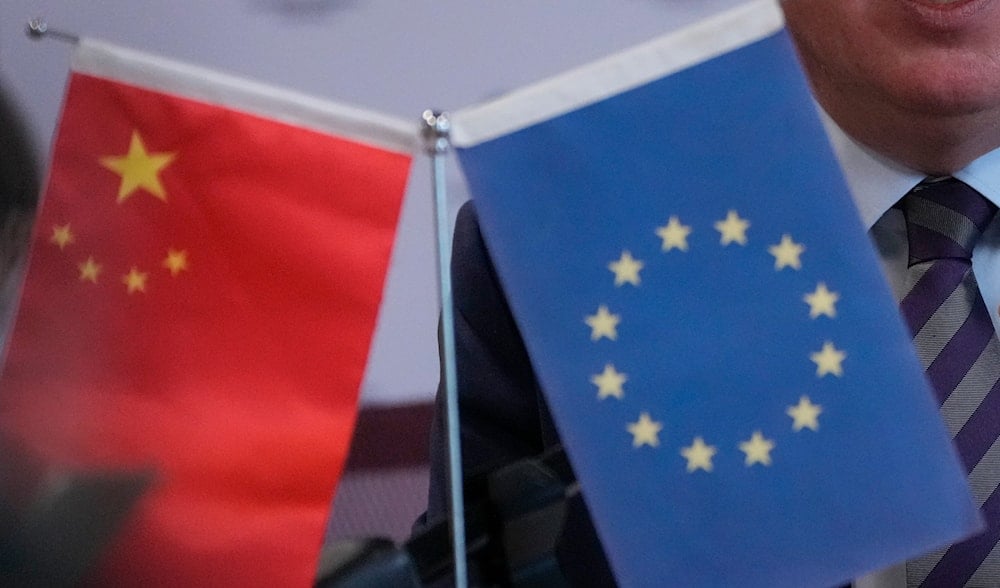EU, China near deal to end EV tariffs amid trade tensions
In late October, the European Commission approved additional duties of up to 35.3% on electric vehicle imports from China, citing concerns over unfair subsidies.
-

The EU and Chinese flags are displayed during a press conference for the annual European Business in China Position Paper, in Beijing, Wednesday, September 11, 2024. (AP)
The chair of the European Parliament's Committee on International Trade, Bernd Lange, announced on Friday that the EU and China are nearing a deal to remove tariffs on Chinese electric vehicle imports to Europe.
"We are continuing negotiations with the Chinese side on electric vehicles. We are close to a decision with China to cancel the duties. We are close to an agreement: China can commit to offering electric vehicles in the EU at least at the minimum price. This would solve the problem of distorting competition through unfair subsidies, which is why duties were initially introduced," Lange told German broadcaster NTV.
The official noted that he does not share Germany's concerns about potential Chinese retaliatory measures.
In late October, the European Commission approved additional duties of up to 35.3% on electric vehicle imports from China, citing concerns over unfair subsidies. These subsidies, the EU argued, allow Chinese EVs to undercut European manufacturers, threatening local industry competitiveness.
In response, China warned that this move could provoke a trade war and imposed provisional anti-dumping measures on brandy imports from the EU, escalating tensions between two of the world's largest trading partners.
Incoming Trump presidency
Europe's decision to broker a deal with China comes amid Donald Trump’s recent presidential victory in the US, which is widely seen as a potential strain on US-EU relations.
Observers have previously warned of the "far-reaching consequences" of Trump's proposed tariffs and foreign policy approach on the transatlantic relationship.
Read more: Trump's new term targets Iran, backs 'Israel', confronts China head-on
On Tuesday, US House Speaker Mike Johnson announced that the Republican Party plans to adopt an aggressive approach toward China in the upcoming Congress, prioritizing legislation and measures to address concerns over Beijing's influence and actions.
"I think we have to be very aggressive on China," Johnson told reporters following a Republican Conference Meeting.
"You're going to have a very aggressive approach to this in the new Congress. Republicans are very serious about this, very sober-minded. We have lots of legislation, lots of measures that we'd like to pursue."
Johnson also expressed confidence that President-elect Donald Trump would adopt a similarly assertive stance on China.

 3 Min Read
3 Min Read








